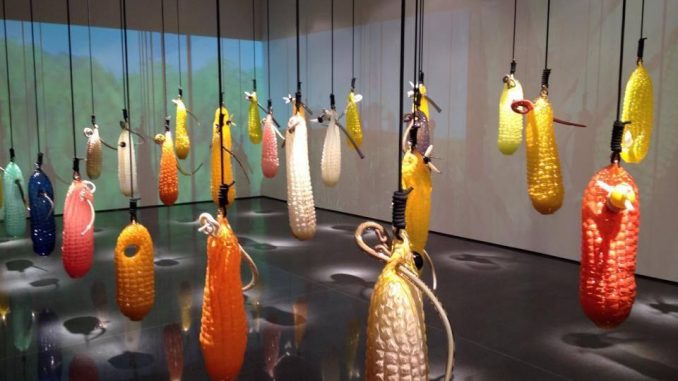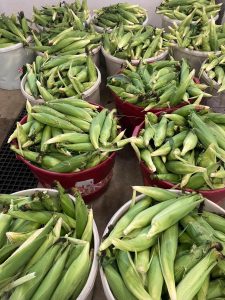
Nigeria approved the commercialization of genetically engineered corn in January 2024 on the basis that GMOs will make food cheap and abundant in Nigeria and should be welcomed, with strong sentiments there will still be organic products for those that want it.
The argument that Farmers in Nigeria waste bulk of the energy planting crops only to return less than 50% output, a quite discouraging mechanism to feed millions of hungry Nigerians
What does GMO crop imply
GMO crops are modified to boost yield production and to be resistant to crop diseases
For the purpose of this post, it is necessary to know the EU does not allow Genetically Modified crop cultivars in their market, despite having a good health system to manage any crisis that may result as a result of mutations. So why should Nigeria approve of it?
GMOs may have benefits, the potential risk of genetic contamination for local crops is a crucial concern. It is important to consider the long-term implications on biodiversity and food security before embracing widespread adoption.
First, Nigeria can’t put our food security in the hands of another nation. Many countries that care about their citizens health and safety have either restricted or banned GMOs. In Africa, Algeria and Zimbabwe have banned it’s use. Sadly, Nigeria and her Farmers generally tend to look only at the immediate yields.
There’s hunger and hardship in the land and most farmers will do anything humanly possible to have bountiful harvest. From the gods of Egypt which made agriculture blossom to the present day “abolovungu” among the Tiv. farmers have always loved extra yield.
How the do we deal with the GMO embrace amongst local farmers?
How can one preserve seedlings locally for next planting season?
How do they preserve seedlings in your community?
Is their possibility of having a community seed bank distributed to local farmers at every new season?
How can local poor farmers preserve their seedlings?

These questions highlight the importance of ensuring that agricultural policies prioritize the long-term resilience and autonomy of local farming communities. Our farmers as a matter of fact must begin to preserve our local grains and seeds. Find ways to store and preserve them for a very long time.
It is worthy to note that it is the danger of these engineered seeds outperforming and dominating our agricultural markets that is at stake. According to David Hundeyin, “these variants, developed using proprietary technology by their American patent holders, can mix with local crop variants around the world and become dominant. The patent owner has the right to stop you from planting his GMO seeds, and to dictate how much of it you can buy”.
Bad enough, the GMOs may have the capability of weakening the soil, so that natural seeds don’t thrive on it any more. Which still leads African farmers from being dependent of GMO seed manufacturers.
Now, what does this mean for our farmers?
People will be forced to sell off every harvest since it won’t yield in the next harvest season even when planted.
It means our native farmers will be unable to grow their own crops from what they stored in their barn the previous harvest season as they’ve always done over the years but will have to really on purchases from a company who may for any reason at all decided whether they’ll sell or not sell seeds to them.
In order to avoid this with our leaders becoming specialist in poverty exaltation and puppets to foreign big wigs, our local farmers should stick only to their traditional methods, which they’ve known for ages.
Some journals at IITA back in the day shows that local farmers in other climes at times are skeptical about using some of these improved varieties.
A Nigerian farmer, Idiake Charles has this to say
“I had the experience in 2022. The maize I kept for planting from my 2021 harvest did not germinate. After waiting for about two weeks, I dug some out and found them to be just as I planted them. I didn’t know they were GMO. I had to buy another seeds for planting”
The GMO goal is not far fetched, it intends to increase the dependency on them until they become indispensable and that’s not the best way to achieve good security, Instead, we’re sliding in to a generation of man made famine.
GMO means genetically modified

Leave a Reply